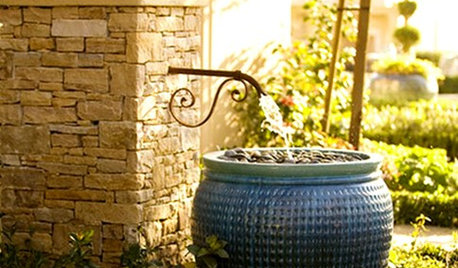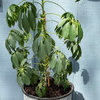Question for Al: Ammonium Toxicity
oxboy555
10 years ago
Related Stories

HEALTHY HOMESleep Happier and Healthier in a Toxin-Free Bedroom
Light pollution, toxic bedding, wallpaper that off-gases ... if you're not getting good sleep, these bedroom blights might be to blame
Full Story
GREEN BUILDINGWhat's LEED All About, Anyway?
If you're looking for a sustainable, energy-efficient home, look into LEED certification. Learn about the program and its rating system here
Full Story
FURNITUREOutdoor Fabric Joins the In Crowd
Stepping out in even the poshest interiors, durable outdoor fabrics have transcended sidekick status
Full Story
GREEN BUILDINGEcofriendly Cool: Insulate With Wool, Cork, Old Denim and More
Learn about the pros and cons of healthier alternatives to fiberglass and foam, and when to consider an insulation switch
Full Story
CONTRACTOR TIPSBuilding Permits: What to Know About Green Building and Energy Codes
In Part 4 of our series examining the residential permit process, we review typical green building and energy code requirements
Full Story
WOODDesign Workshop: Plywood as Finish
Trendproof your interior with this sensible guide to using this utilitarian material indoors
Full Story
EDIBLE GARDENSNatural Ways to Get Rid of Weeds in Your Garden
Use these techniques to help prevent the spread of weeds and to learn about your soil
Full Story
GARDENING GUIDESHow to Get Your Prairie On
Have a field day with your landscape, even if you've got just a few modern containers on a paved path
Full Story
GREEN BUILDINGJust Add Water: Rain Barrel Magic
Take your rainwater storage from practical to beautiful with a new breed of design-friendly rain barrels
Full Story
EARTH DAYThe Case for Losing the Traditional Lawn
Work less, help the environment and foster connections by just saying no to typical turf
Full StoryMore Discussions








drew51 SE MI Z5b/6a
oxboy555Original Author
Related Professionals
Deer Park Landscape Architects & Landscape Designers · Willowick Landscape Architects & Landscape Designers · Middletown Landscape Contractors · East Haven Landscape Contractors · Newberg Landscape Contractors · Winter Gardens Landscape Contractors · Brockton Solar Energy Systems · Marietta Window Contractors · San Antonio Window Contractors · Bridgeport Window Contractors · Central Islip Window Contractors · Bixby Fence Contractors · Channahon Fence Contractors · Columbia Fence Contractors · Lauderhill Fence Contractorscalistoga_al ca 15 usda 9
oxboy555Original Author
drew51 SE MI Z5b/6a
oxboy555Original Author
calistoga_al ca 15 usda 9